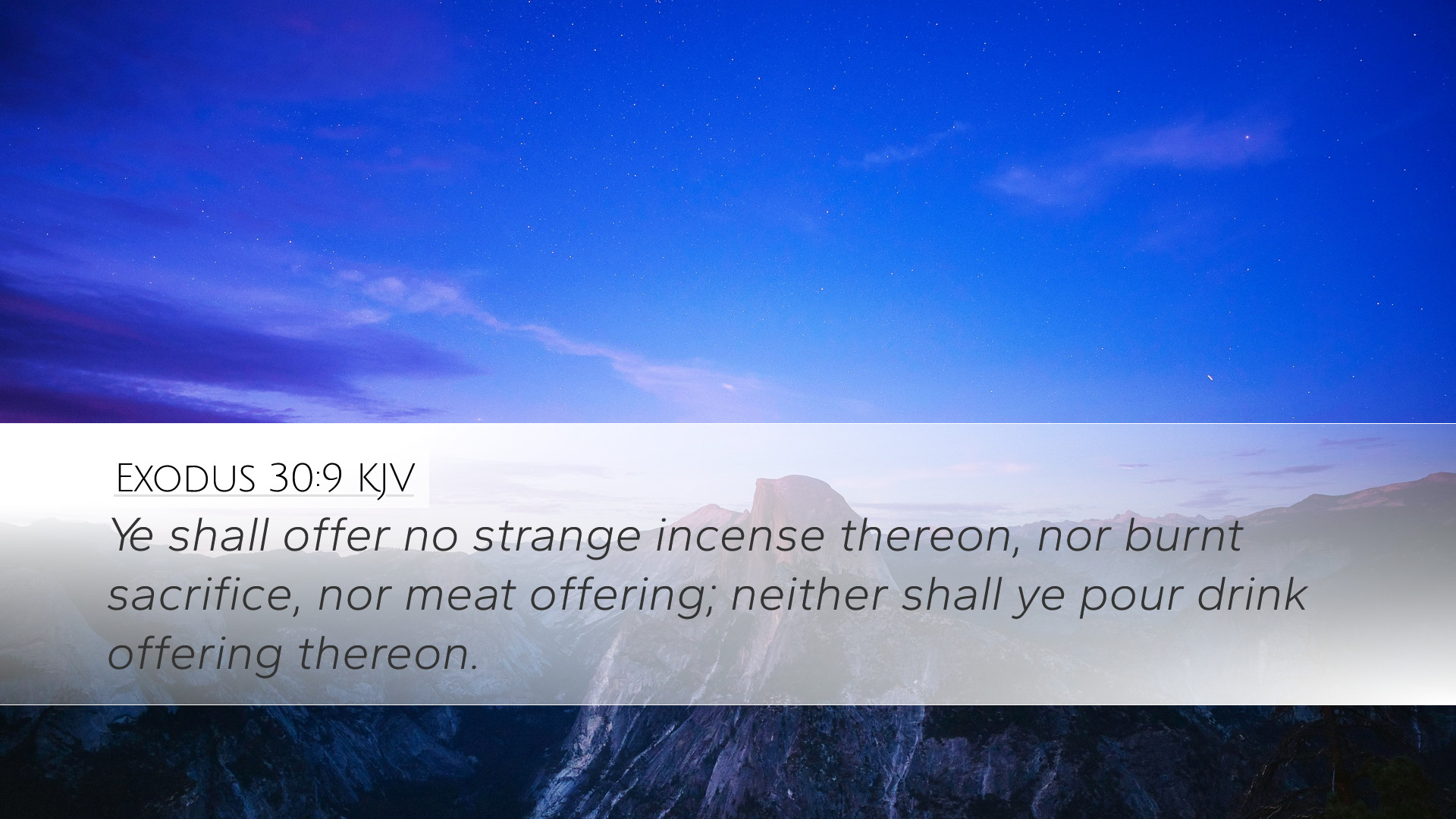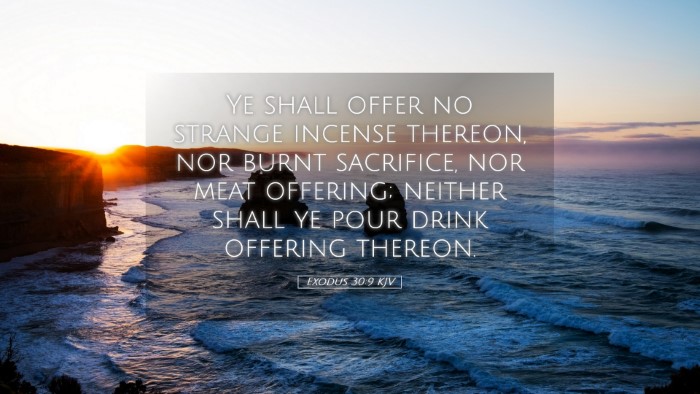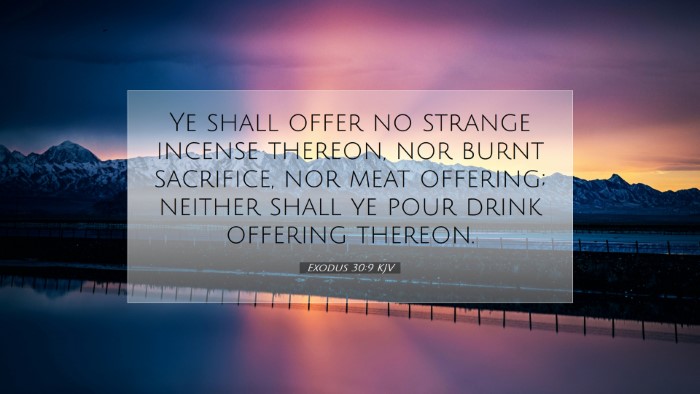Exodus 30:9 - Commentary
Verse Context: Exodus 30:9 states, “You shall not offer unholy incense on it, nor burnt offering or grain offering; and you shall not pour a drink offering on it.” This verse is part of the instructions given to Moses regarding the construction and usage of the altar of incense, which holds significant liturgical and symbolic importance in the worship practices of ancient Israel.
Introduction
This commentary seeks to delve into the meaning and implications of Exodus 30:9 by integrating insights from renowned public domain Bible scholars such as Matthew Henry, Albert Barnes, and Adam Clarke. By examining the spiritual significance of the altar and the prohibitions mentioned in this verse, we aim to glean profound truths applicable to the Christian faith today.
Significance of the Altar of Incense
The altar of incense, located in the Holy Place of the Tabernacle, represented the prayers of the people ascending to God. The incense was a symbol of the worship and adoration due to God alone.
- Matthew Henry: Henry stresses that the altar of incense signifies the prayers and praises of saints, which are acceptable to God only through the intercession of Christ.
- Albert Barnes: Barnes notes that the incense is a type of Christ's righteousness – only with Christ's merit can our prayers ascend to God with sweetness.
- Adam Clarke: Clarke emphasizes the necessity of purity in the offerings to God, portraying a distinction between the sacred and the profane.
Understanding the Prohibition
The restrictions placed on the altar of incense in Exodus 30:9 reveal God's desire for holiness in worship. Various forms of offerings were explicitly forbidden on this altar, reflecting a divine guideline for acceptable worship practices.
- Holy Incense: This signifies the nature of the prayers being acceptable and pleasing before God.
- Burnt Offerings: These were meant to atone for sin, and their exclusion from the altar of incense denotes a clear separation between atonement and adoration.
- Grain and Drink Offerings: While these offerings met their purpose in other contexts, their prohibition at the altar suggests that worship directed to God must be intentional and focused solely on prayer and adoration.
Theological Implications
The refusal to allow these offerings on the incense altar reveals several critical theological truths:
- Divine Order: God establishes specific guidelines for worship, highlighting that He is the one who defines how we are to approach Him.
- Sacredness of Prayer: Prayer serves as a distinct means of communion with God, setting it apart from sacrificial offerings which signify atonement and communion.
- Need for Purity: The demand for holiness in the act of worship demonstrates God's desire for His people to approach Him with reverence and faith.
Applications for Modern Worship
For pastors and theologians today, the principles derived from Exodus 30:9 hold significant relevance as they inform modern worship practices:
- Focus on Prayer: Emphasizing prayer in the life of the church should be paramount, ensuring that it is rooted in sincerity and seeking God’s presence.
- Distinction of Worship Elements: Recognizing the difference between various aspects of worship and their purposes ensures a balanced and biblically-centered approach to corporate and personal worship.
- Holiness in Worship: Maintaining a standard of holiness within worship activities enhances the church's relationship with God and reflects the character of His nature.
Conclusion
Exodus 30:9 serves as a critical reminder of God's expectations in our worship and the necessity of maintaining purity and reverence in all we offer to Him. By adopting the perspectives of Matthew Henry, Albert Barnes, and Adam Clarke, modern believers can deepen their understanding of worship, recognizing that our prayers should rise like sweet incense before a holy God.


